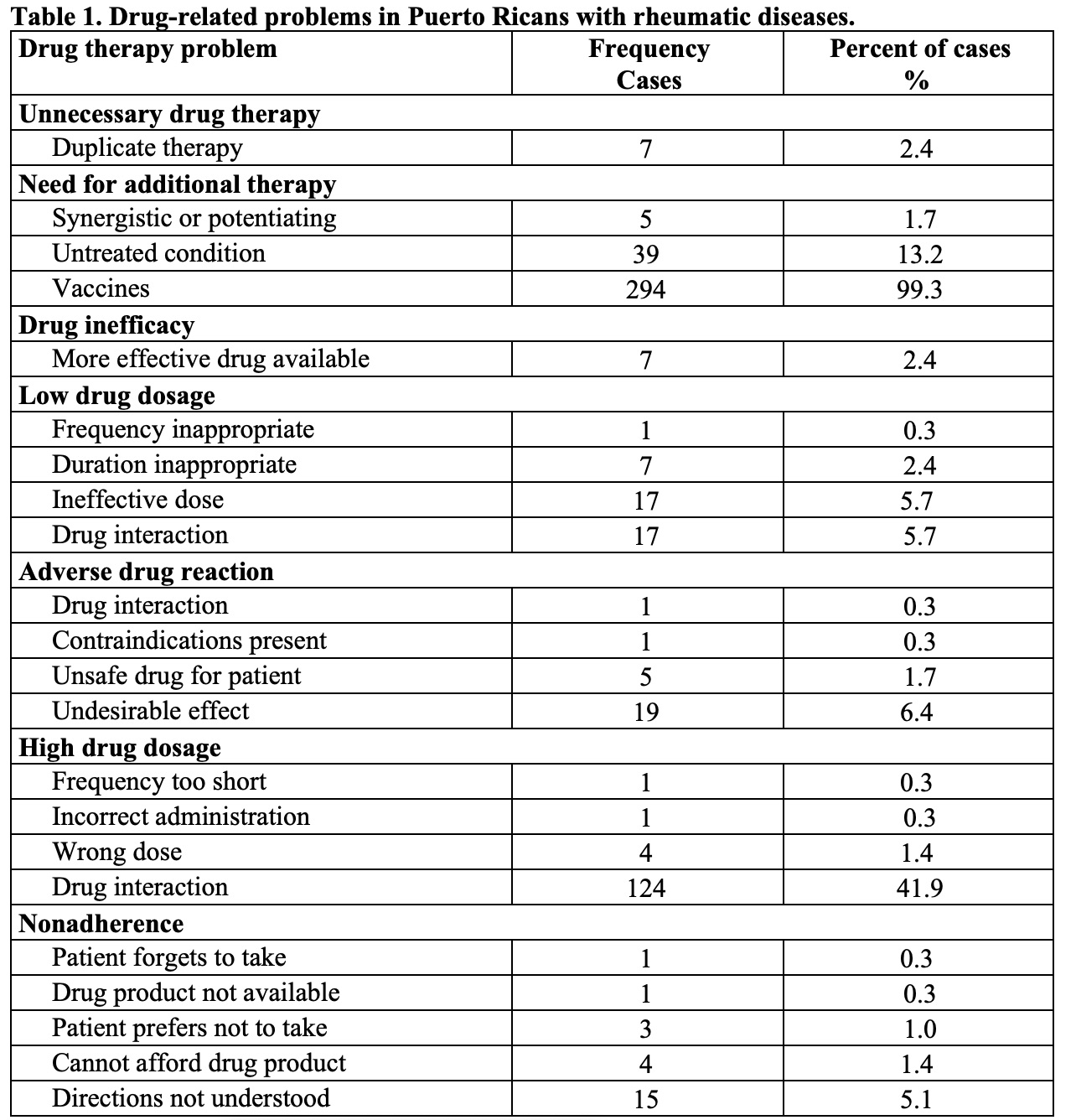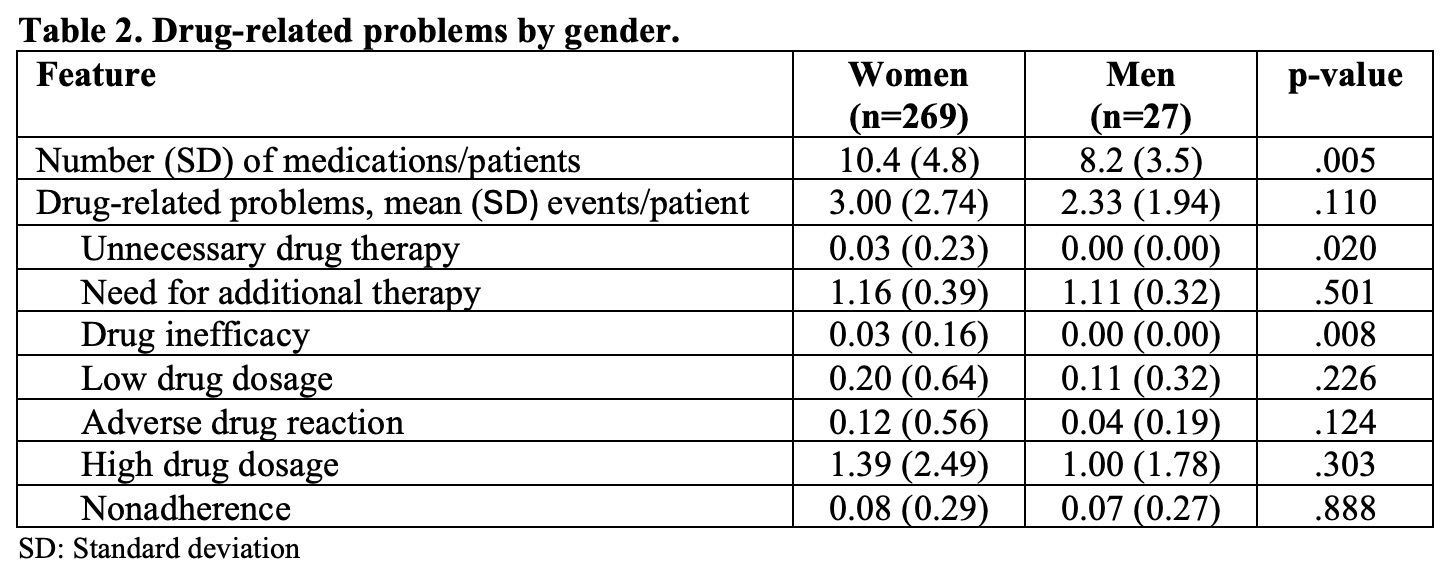Session Information
Session Type: Poster Session C
Session Time: 10:30AM-12:30PM
Background/Purpose: Comprehensive Medication Management (CMM) is a standardized intervention provided by clinical pharmacists that uses subjective and objective patient information to create a plan to optimize an individual’s pharmacotherapy. After collecting patient-specific data, the pharmacist identifies drug-related problems (DRPs). Few CMM studies have been conducted on patients with rheumatic disorders. Therefore, we aimed to determine DRPs in a group of Puerto Ricans with rheumatic diseases.
Methods: A cross-sectional study was conducted on adult Puerto Ricans (aged 21 and older) with rheumatic diseases at a university-based practice in Puerto Rico. Participants received CMM services, and DRPs were identified during the study visit. DRPs were categorized into seven groups: unnecessary drug therapy, need for additional therapy, drug inefficacy, low drug dosage, adverse drug reactions, high drug dosage, and nonadherence. Two-tailed Mann-Whitney two-sample rank-sum test, Pearson correlation, and ANOVA were used to examine the relationship between DRPs and gender, age, and rheumatic conditions, respectively.
Results: A total of 296 participants were included in the study. The mean age was 50.4 years (standard deviation, SD = 12.5), and 91% of the participants were female. The three most common rheumatic disorders were fibromyalgia (35.5%), systemic lupus erythematosus (33.1%), and rheumatoid arthritis (31.8%); patients could have more than one co-occurring rheumatic disorder. The mean number of medications (including supplements) was 10.2 (SD = 4.7) per patient, and the mean number of drug-related problems (DRPs) per patient was 2.9 (SD = 2.7). The most common DRPs were incomplete vaccination (99.3%), drug interactions that may lead to inappropriate high dosages (41.9%), and the need for additional drug therapy for untreated conditions (13.2%) (Table 1). No statistically significant differences were observed between age groups (21-39, 40-59, and ≥60 years) for all DRP categories. Women with rheumatic diseases had a higher mean number of DRPs in the categories of unnecessary drug therapy and drug inefficacy compared to men (Table 2). Additionally, women were exposed to a greater mean number of medications. The presence of fibromyalgia was associated with a higher mean number of DRPs (2.26 vs. 4.18, p< 0.001) when compared to those without fibromyalgia.
Conclusion: In this group of Puerto Rican patients with rheumatic diseases, a high number of patients had DRPs, particularly in the categories of need for additional therapy and high drug dosage. Additionally, gender- and disease-specific differences were observed. Evaluating the impact of the CMM service on the long-term clinical outcomes of these patients would be crucial.
To cite this abstract in AMA style:
Rodriguez Nazario I, Melin K, Vilá L. Implementation of Pharmacist-Led Comprehensive Medication Management for Puerto Ricans with Rheumatic Diseases [abstract]. Arthritis Rheumatol. 2024; 76 (suppl 9). https://acrabstracts.org/abstract/implementation-of-pharmacist-led-comprehensive-medication-management-for-puerto-ricans-with-rheumatic-diseases/. Accessed .« Back to ACR Convergence 2024
ACR Meeting Abstracts - https://acrabstracts.org/abstract/implementation-of-pharmacist-led-comprehensive-medication-management-for-puerto-ricans-with-rheumatic-diseases/


